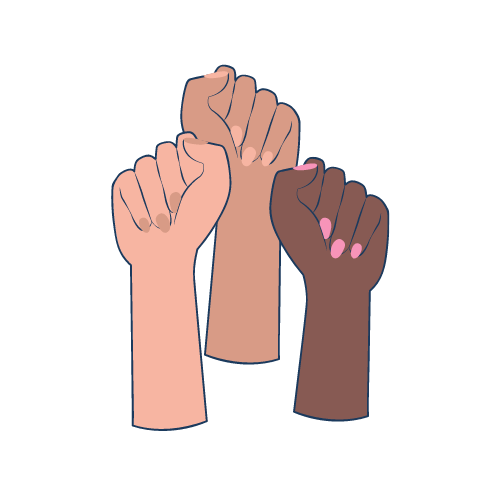Sexual violence can happen to anyone, no matter your age, race, religion, immigration status, ability, culture, sexual orientation, or gender identity.

We at CSAC recognize that supports, services, and resources geared to the general public are not always accessible or culturally safe for marginalized groups. To ensure we are providing culturally-relevant services to all those impacted by sexual violence, we have compiled a list of resources and supports specifically targeted toward marginalized groups.
Impacts of Trauma and Sexual Violence on Marginalized Groups Speaker Series
In February 2023, the Colchester Sexual Assault Centre hosted a Virtual Speaker Series on the Impacts of Trauma and Sexual Violence on Marginalized Groups. Each session we welcomed special guest presenters who shared their professional perspectives and lived experience for each of the four groups that were highlighted.
To explore these resources, follow the links below:
Indigenous Peoples
African Nova Scotians
2SLGBTQIA+
People with Disabilities
Newcomers to Canada
Youth
Men Impacted by Sexual Violence
The intersections of sexual violence

Intersectionality is a concept by black feminist scholar Kimberlé Crenshaw designed to help us observe and analyze power imbalances. It helps us understand how different aspects of our lives — our various social locations — relates to how much power we occupy in society. These social locations can include our racial or ethnic background, gender identity, assigned biological sex, sexual orientation, economic status, religious beliefs, migration status, age, ability, and mental health.
A person’s life experiences are inevitably shaped by the interaction of these different social locations, which are rooted in overarching systems of power that produce privilege and oppression in our society. These systems of power include colonialism, racism, patriarchy, homophobia, heterosexism, ableism, transphobia, classism, sanism, ageism, xenophobia, and/or any other form of discrimination. Sexual violence has been used, and continues to be used as a tool to uphold these systems of power.
Inevitably, someone’s position within society — their identity, background, or situation — will impact how a person experiences sexual violence. It can also impact their ability to access support, as well as how other people will interpret and respond to a disclosure. It can also influence if they report sexual violence to authorities. For example, Black immigrant woman will face different challenges in how they experience and respond to sexual violence than a white transwoman with a disability.
Intersectionality isn’t about comparing trauma or “who has it worse.” It’s about examining and understanding the reasons behind why people respond to sexual violence in different ways and at different points in their life. Everyone’s trauma is valid.

